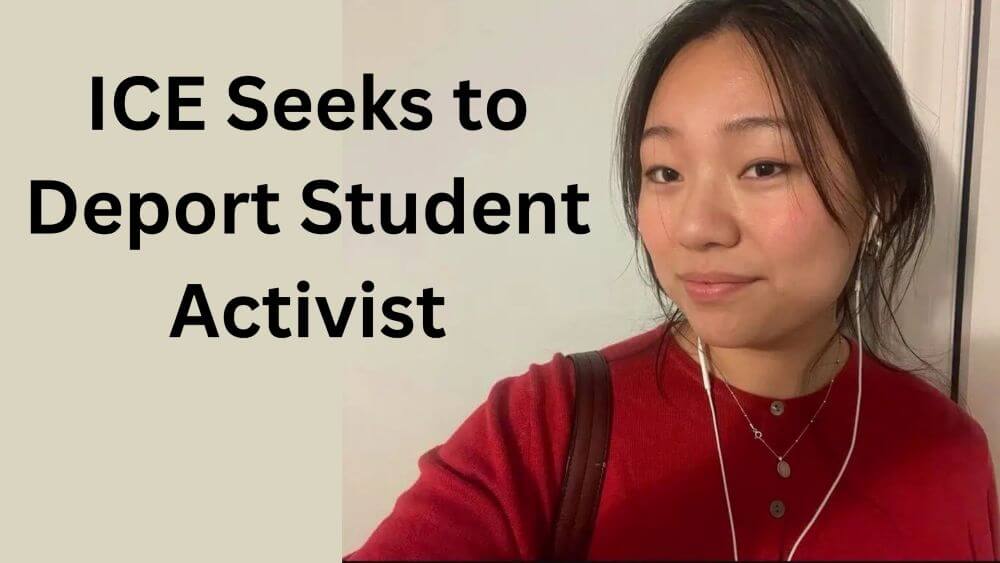Yunseo Chung, a legal permanent resident who has lived in the U.S. since she was seven, was arrested for occupying the lobby of Barnard College’s main library on Wednesday. Her participation in pro-Palestinian demonstrations escalated tensions with school administrators, ultimately leading to several protesters being taken into custody, according to police reports.
Now, because she is not a U.S. citizen, Immigration and Customs Enforcement (ICE) is seeking to deport her. In response, Chung is suing the Trump administration to prevent her deportation.
Chanting “Free Palestine” and wearing masks and keffiyehs over their faces, the protesters began their sit-in inside the Milstein Center for Teaching and Learning around 1 p.m. Shortly afterward, the school blocked access to the building, disrupting classes.
The demonstrators were demanding the reinstatement of two Barnard students who had been expelled for interrupting a “History of Modern Israel” class on January 21 and distributing fliers, including one depicting a jackboot crushing a Star of David.
The Trump administration has prioritized the detention of pro-Palestinian demonstrators, particularly those who are not U.S. citizens.
Ms. Chung, an English and gender studies major, has participated in pro-Palestinian demonstrations since last year. She also faced college disciplinary proceedings twice — including for putting up posters accusing Columbia of “complicity in genocide.”
At this time, she has not been detained by ICE because she is in hiding. However, those assisting her may also face legal consequences.
Protests Have Limits
The First Amendment protects free speech and peaceful protest, but that protection does not extend to illegal activities. The law is clear:
- Blocking access to buildings, classrooms, and emergency exits is illegal.
- Disrupting classes interferes with academic operations and can violate campus policies.
- Vandalism and property damage are criminal offenses.
- Threats or violence are never protected under free speech laws.
- Trespassing in restricted areas, particularly after hours, is a punishable offense.
- Defamation—making false accusations that harm reputations—can lead to legal consequences.
Students should follow the law when protesting issues they disagree with and carefully consider the potential legal consequences of their actions.
Previous opinion posts

Leave a Reply